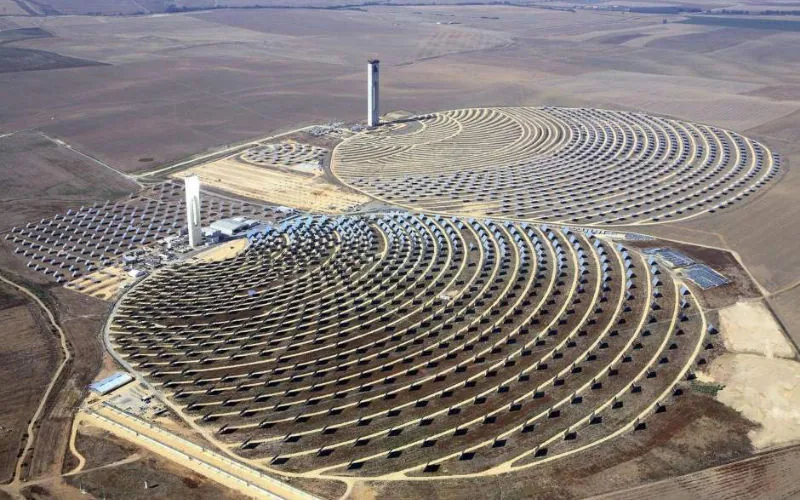Gulf Investors Back Morocco’s Ambitious Renewable Energy Goals

Giants from Saudi Arabia and the United Arab Emirates are supporting Morocco in its ambition to increase the share of renewable energy to 52% of the energy mix by 2030 and even become one of the world leaders in solar energy.
Numerous projects have been initiated in North Africa by sovereign wealth funds from Saudi Arabia (Public Investment Fund, PIF) and Abu Dhabi (Mubadala), as well as private companies like Dubai-based AMEA Power, reveals a report by the British think tank Bourse & Bazaar, recently published in London. These investors are turning to countries like Egypt and Jordan. But it is especially Morocco, whose robust climate commitments and coherent industrial strategy fascinate them, that concentrates their investments.
One of the flagship projects is the Noor Ouarzazate complex, co-financed by the Saudi giant ACWA Power. With a capacity of 580 megawatts, it remains one of the largest solar parks in the world today. Another project: the development by AMEA Power of several medium-sized parks in Taroudant, Tangier, and El Hajeb. The Emirati giant Masdar has partnered with the National Office of Electricity and Drinking Water (ONEE) to supply solar electricity to more than 19,000 Moroccan households. According to official projections, the installed capacity should increase from 2.7 gigawatts in 2027 to 2.97 gigawatts by 2028.
These projects are complemented by international-scale projects, such as the planned construction of a 3,800 km underwater cable to connect Morocco to the United Kingdom and provide 8% of Britain’s electricity needs.
In Rabat, investors receive support from the Moroccan Agency for Sustainable Energy (MASEN). It oversees the administrative aspect: the agency helps them obtain administrative authorizations, access to land, and ensure the security of contractual conditions.
However, industrial constraints can slow down the current dynamic. These include, among others, local content requirements imposed by Moroccan legislation. Developers are indeed forced to employ local workers, including for highly technical positions for which skills are sometimes difficult to mobilize in the Moroccan market. Rabat also requires them to use locally manufactured solar panels, a requirement that often slows down logistics and increases supply times.
Related Articles
-

Morocco’s Hidden Real Estate Tax Trap: Sellers Face Shock Bills After Property Deals
21 August 2025
-

Morocco Dominates MENA Tourism: 4 Leaders Ranked Among Top 100 Influencers
21 August 2025
-

French Vacation Tax Audit Rumor Debunked: Viral TikTok Claim Sparks Outrage
21 August 2025
-

Marrakech and Agadir Sizzle: Morocco’s Culinary Gems Top MENA Outdoor Dining Destinations
20 August 2025
-

Global Halal Boom: Google Trends Reveal Surge in Interest Beyond Muslim Countries
20 August 2025